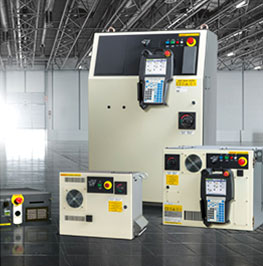

Jan . 01, 2025 13:58 Back to list
The Importance of Non-Ferrous Metal Separation in Recycling
In the world of recycling, the separation of non-ferrous metals plays a crucial role in the efficient processing and recovery of valuable materials. Non-ferrous metals are those that do not contain significant amounts of iron; examples include aluminum, copper, zinc, lead, nickel, and precious metals like gold and silver. The importance of non-ferrous metal separation stems from the growing demand for these metals in various industries, as well as the environmental benefits it entails.
One of the primary reasons for separating non-ferrous metals from mixed waste is their high economic value. Non-ferrous metals are used extensively in construction, electronics, automotive, and manufacturing industries. For instance, aluminum is widely utilized in packaging and building materials due to its lightweight and resistance to corrosion. Copper, on the other hand, is essential in electrical wiring and plumbing due to its excellent conductivity. When these metals are recovered from waste, they can be melted down and reused, significantly reducing the need for mining and the associated environmental degradation.
The process of non-ferrous metal separation typically begins with the collection of mixed scrap materials. This can include anything from discarded appliances and automotive parts to construction debris. Once collected, the materials are transported to recycling facilities where they undergo a series of sorting processes. This often involves the use of advanced technologies such as eddy current separators, magnetic separators, and optical sorters. Eddy current separators, for example, utilize a magnetic field to repel non-ferrous metals, allowing them to be separated from ferrous materials and non-metallic waste effectively.
Another significant advantage of non-ferrous metal separation is the substantial reduction in energy consumption compared to the extraction of raw metals from ore. For instance, recycling aluminum saves about 90% of the energy required to produce aluminum from bauxite ore. By reusing these metals, we not only conserve natural resources but also mitigate greenhouse gas emissions associated with mining and refining processes.

Moreover, separating non-ferrous metals contributes to a circular economy—an economic system aimed at minimizing waste and making the most of resources. In this system, non-ferrous metals are not merely discarded after use; instead, they are collected, processed, and reintroduced into the production cycle, thereby fostering sustainable practices. As consumer awareness regarding environmental sustainability grows, businesses and manufacturers are increasingly seeking recycled materials to lessen their carbon footprint and abide by stricter regulations regarding waste disposal and resource usage.
The role of regulatory policies and community initiatives also cannot be overlooked in promoting non-ferrous metal separation. Governments and local authorities are implementing more robust recycling programs, offering incentives for proper waste separation, and raising public awareness about the importance of recycling non-ferrous metals. These initiatives not only educate the public on responsible waste management but also enhance the overall efficiency of recycling systems.
Despite the progress made in non-ferrous metal separation, challenges remain. Contamination of recyclable materials is a significant issue that can hinder the separation process. For example, if non-ferrous metals are mixed with hazardous substances or improperly disposed materials, it complicates recycling efforts and can lead to environmental harm. Therefore, public education on recycling practices is essential to ensure that non-ferrous metals are collected and processed correctly.
In conclusion, the separation of non-ferrous metals is vital for efficient recycling, environmental sustainability, and resource conservation. As technology continues to advance, and public awareness grows, the processes surrounding non-ferrous metal separation will undoubtedly become more refined and effective. This will not only benefit the economy but also pave the way for a sustainable future where valuable resources are utilized wisely and waste is minimized. The collective effort in promoting non-ferrous metal separation can indeed make a significant impact in our transition towards a greener planet.
Latest news
Eddy Separator for Non-Ferrous Metals
NewsAug.22,2025
E Waste Bin for Collected Spray Cans: Sustainable Disposal Solutions
NewsAug.22,2025
Dual Shaft Shredder with Adjustable Blade Gaps
NewsAug.22,2025
Hammer Crusher Machine With Secondary Crushing
NewsAug.22,2025
Copper Granulator Our Promise of Recycling Excellence
NewsAug.22,2025
Industrial Shredders Crafted for E-Waste Recycling
NewsAug.22,2025